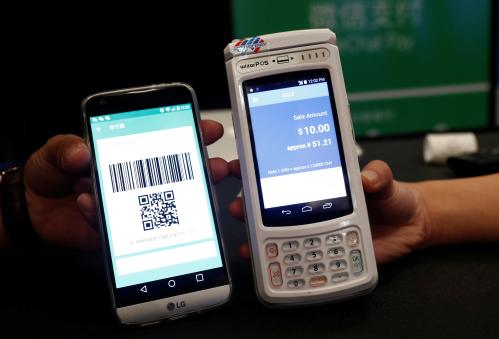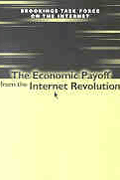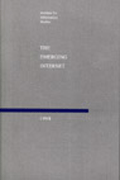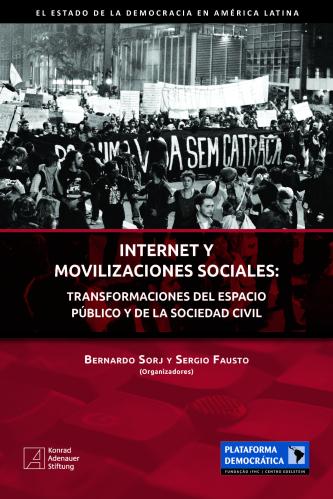Digital connectivity is the most powerful driver of social and economic change the world has seen. The Internet will connect an estimated 5 billion people by 2020. That many already use cell phones. Connectivity is reshaping the landscape we inhabit, changing the ways we communicate, learn and do business. It is behind the world’s most transformative trends, including an unprecedented empowerment of the individual.
The free flow of data is a core element of the Internet that has underpinned this growth in connectivity, innovation and productivity. This freedom has been vital to the growth of digital trade in goods and services, a quickly growing share of global GDP. Its importance is evident every minute as citizens, businesses and governments access global services such as cloud computing, and health and education opportunities. Entrepreneurs in developing countries benefit from free flow as they sell their products globally over the Internet, using international financial data transfers to process transactions. It has also been a critical factor in the explosive growth of access to information and human opportunity.
We are, however, only at the beginning of the digital age. It is hard to grasp the enormity of what this advance portends. More data was created and exchanged last year than in all of human history. The growth in the use and exchange of data is accelerating exponentially–fueling massive new economic activity, enabling major advances in scientific research, analysis of big data, and providing tools to help address existential challenges to human well-being such as climate change.
There are, however, some major speed bumps that threaten this advance as governments around the world are increasingly seeking to restrict or control the flow of data.
No question about it, the Internet is disruptive. That’s why it’s not hard to understand the impulse to control it. But, as with everything, there is a balance to be sought. For example, efforts to prevent cyber crime, or maintain the privacy of personal data should avoid unnecessary restrictions on the free flow of data across borders. Attempts by government to limit data flows to restrict market access or provide unfair commercial advantages to domestic businesses reduces international trade. This is discriminatory and trade-distorting, and should be prohibited.
Many governments are already restricting the free flow of data. These attempts are most blatant in repressive and authoritarian countries, but evident even in open societies. Across the world governments are grappling with how to reconcile the freedom of the Internet with the need to address some of the harms associated with its use.
But as government interference in the free flow of data multiplies, we may be reaching an inflection point that could determine kind of Internet the world ends up with. It could become truly global, open and accessible to all. Or, the Internet could become increasingly balkanized and closed, with a loss of economic and social potential that harms all.
International trade forums are starting to discuss how to find the right balance between the free flow of data and action to address legitimate concerns about harmful use of the Internet. In fact, cross border data flow is quickly emerging as an important 21st century trade issue. It is not adequately regulated under the rules of the World Trade Organization and the Korea-U.S. Free Trade Agreement is the first trade agreement to try to address issues related to cross-border data flows. The issue is also part of negotiations under the Trans-Pacific Partnership and will figure prominently in talks for a projected EU-U.S. trade agreement.
It is vital we get it right in these agreements. To do so we need a deeper and wider understanding of the value and stakes associated with the free flow of data across borders. The Annenberg-Dreier Commission and the Brookings Institution are trying to build that awareness, so vital to the world. We are partnering in a meeting next week—the start of a larger project—that will gather some of the top experts from the Asia Pacific region to examine the interests in play.
The aim of this project is to build greater understanding in this region on the importance of the free flow of data as a driver of international trade, economic growth and innovation. The U.S. has developed a thriving Internet industry with regulation that balances the free flow of data and access to the Internet with the need to protect legitimate interests such as the protection of intellectual property, fighting cyber crime and maintaining the privacy of personal data.
Other countries are also trying to capture the gains from the Internet economy. And while this should be encouraged, doing so with regulation that is discriminatory and restricts access to the Internet will harm trade, impede growth and is will be harmful to all. On the contrary, an open Internet that encourages access to data and fosters competition will deliver the most economic benefits globally.
Developing a common understanding of these challenges and charting a way forward may ultimately be key to global stability, security, and growth—in short, to building the collaboration necessary to sustain a world we’d want to live in.











Commentary
Growing the Global Internet Economy by Ensuring the Free Flow of Data Across Borders
May 23, 2013